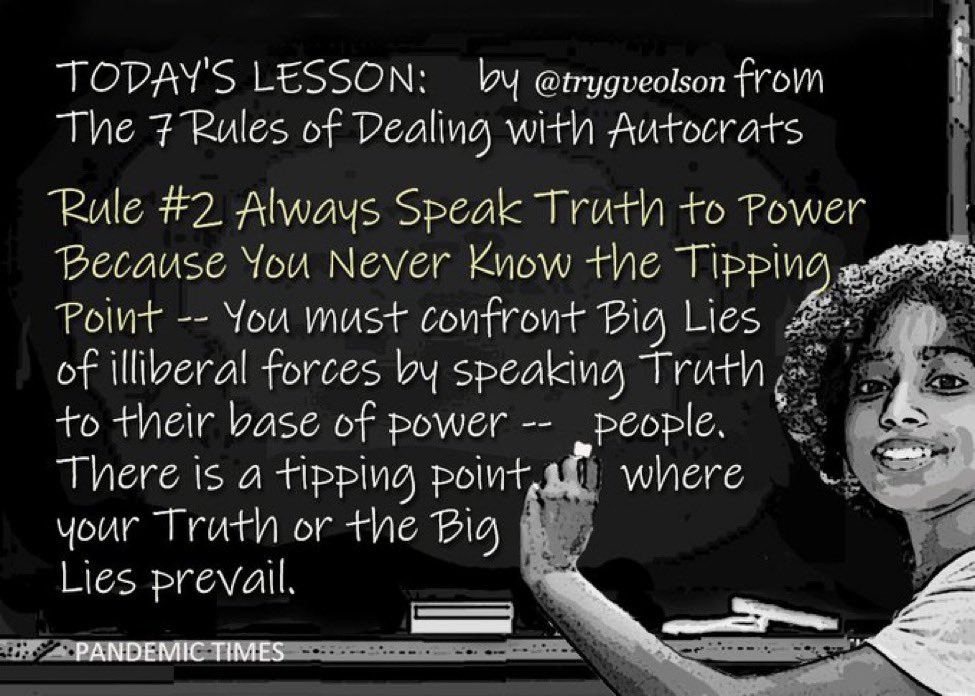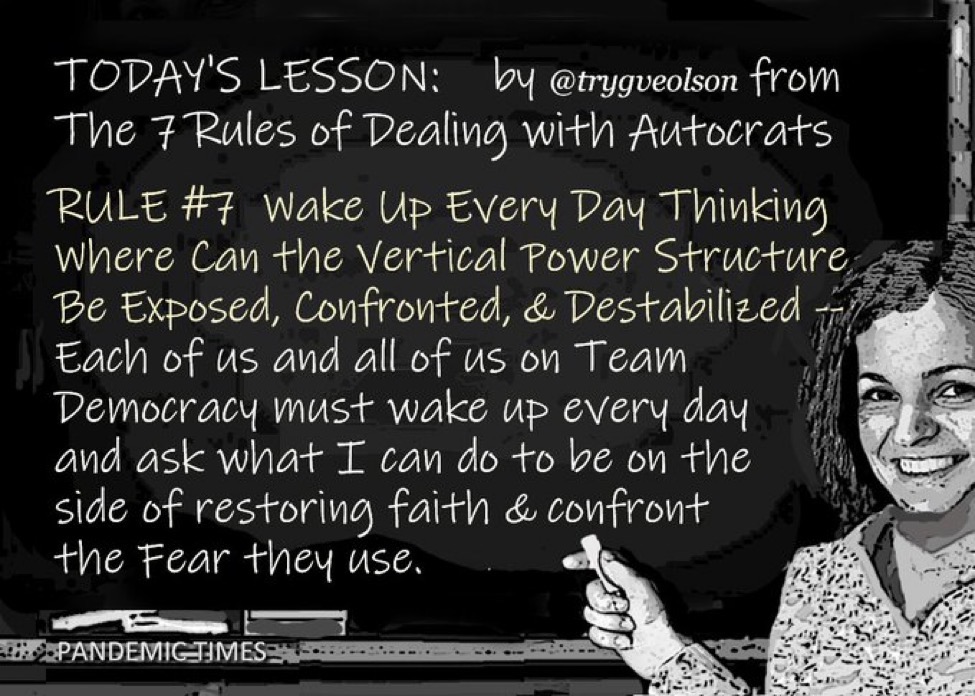Monday Illiberal Tactic’s Thread
The Russian Duma “elections” got me thinking.
@reedgalen @ProjectLincoln @stuartpstevens @JoeTrippi @TheRickWilson @LincolnWatchman @SteveSchmidtSES
The Russian Duma “elections” got me thinking.
@reedgalen @ProjectLincoln @stuartpstevens @JoeTrippi @TheRickWilson @LincolnWatchman @SteveSchmidtSES
I haven’t done a thread about how conspiracy theories work. Russians are good at such things. The term they use is Lzohnay Informatsiya – False Information with a Purpose. If you work in democracy-building circles in Eurasia long enough, someone will bring it up.
It isn’t as though Russians invented conspiracies. In the Middle Ages, there were those of sorcery & magic. The Protocols of Zion are 100's of years old. That said, Russians are good at them, and Lzohnay Informatsiya does a great job explaining how they function.
The starting point for all conspiracy theories is the four psychological factors that create extremists (and potentially those who become radicalized).
The first is psychological distress – I am worried about….
This distress leads to a desire for answers to explain why.
The first is psychological distress – I am worried about….
This distress leads to a desire for answers to explain why.

Distress in politics comes as grievances – real or contrived. Today in the US some are real and some are imagined. Either way, people are looking for answers. Complex problems typically have complex solutions, but there are inevitably politicians willing to give simple ones 

The second is cognitively simplistic answers. Often the solution to problems – whether personal or societal -- are complicated. We desire calming answers. Extremism occurs when simple answers to complex problems are offered. Build a Wall & Mexico will Pay or Defund the Police. 

The third step on the path to extremism is overconfidence. People who become extremists through simple answers become overconfident in their beliefs and explanations. Then, finally, there is an element of enlightenment. I have the answer – I want to share it with others. 

The fourth phase is intolerance. Those who become extremists have the answers and struggle with those they believe don’t see what they do. Those who don’t are a threat. For the extremist, those who don’t share their beliefs become dangerous -- political enemies. 

Conspiracy Theories work along with these four factors. Lzohnay Informatsiya is basically just a Russian name for trafficking in information to push each of these psychological buttons (The False Information) and then to capitalize on them (The Purpose)
There are 5 parts to Lzohnay Informatsiya – it's Russian, so it is rather agrarian.
The first is Posadka (to Plant). This is focused on sowing psychological distress. For example, the Big Lie of election fraud. The psychological distress is my candidate lost. How can this be?
The first is Posadka (to Plant). This is focused on sowing psychological distress. For example, the Big Lie of election fraud. The psychological distress is my candidate lost. How can this be?

Everyone I knew was voting for my candidate. The Lzohnay Informatsiya is all about planting the seed in the ground of distress – It was fraudulent, stolen, etc.
The second phase is Pitat (Nourish). This focuses on pushing narratives. Providing simplistic answers. Typically, as many potential answers as possible to ensure there is a solution for everyone searching, even if they make little sense with each other when taken on the whole. 

With election fraud and Trump, it would be: Voting Machines changed the ballots. Election Workers didn't allow observers. Democrat’s always cheated. We were ahead, and then we weren’t.
The 3rd is Rost (Growing). Here the answers that stick get pushed, ideally by credible voices, but it doesn’t really matter. The story of people believing becomes the story – many people understand & you are not alone. It's obvious. This is about overconfidence. 

The 4th stage is Medev Frukty (Bearing Fruit). Think polling suggesting over 70% of the GOP believing elections were stolen. Those going to rallies to demand elected officials do something – decertify the ballots in key states. Psychologically this is using intolerance. 

The final is Urozhay (Harvesting). What we saw at the Capitol on January 6th. The harvesting is leveraging the false information for some intended political purpose. Plant, Nourish, Grow, and utilize it when the conspiracy theory bears fruit as rage. 

Hopefully, this is helpful. Thank you to @LincolnWatchman for inspiring me. He suggested he was learning from these threads. I thought he would enjoy this one. Much more to come. I hope you will follow me, & I should have some announcements soon. 

• • •
Missing some Tweet in this thread? You can try to
force a refresh













